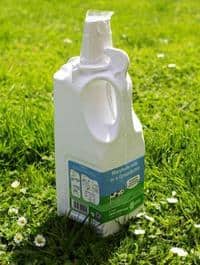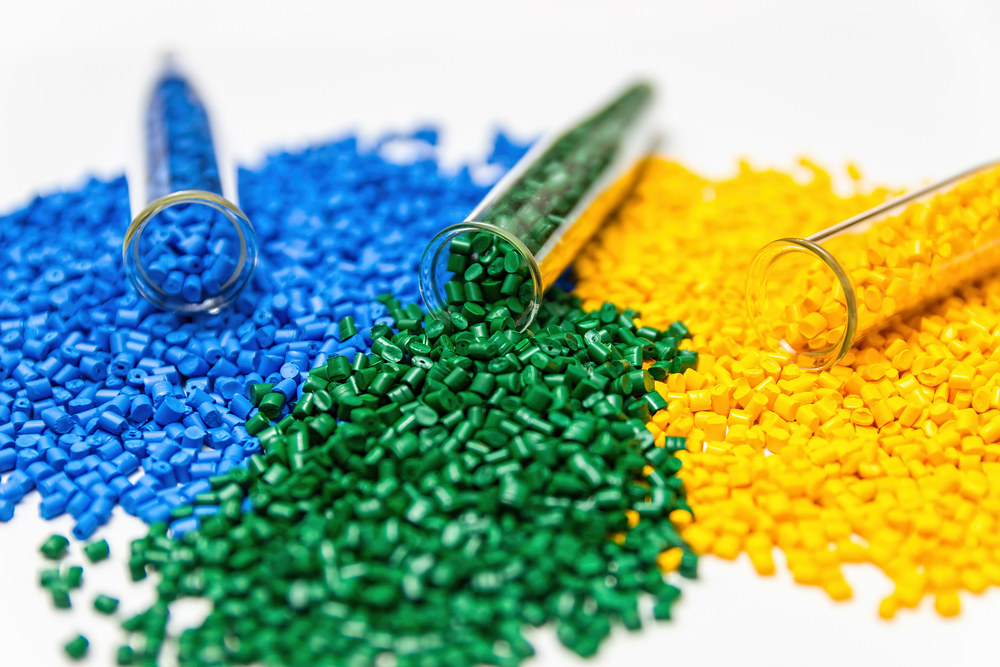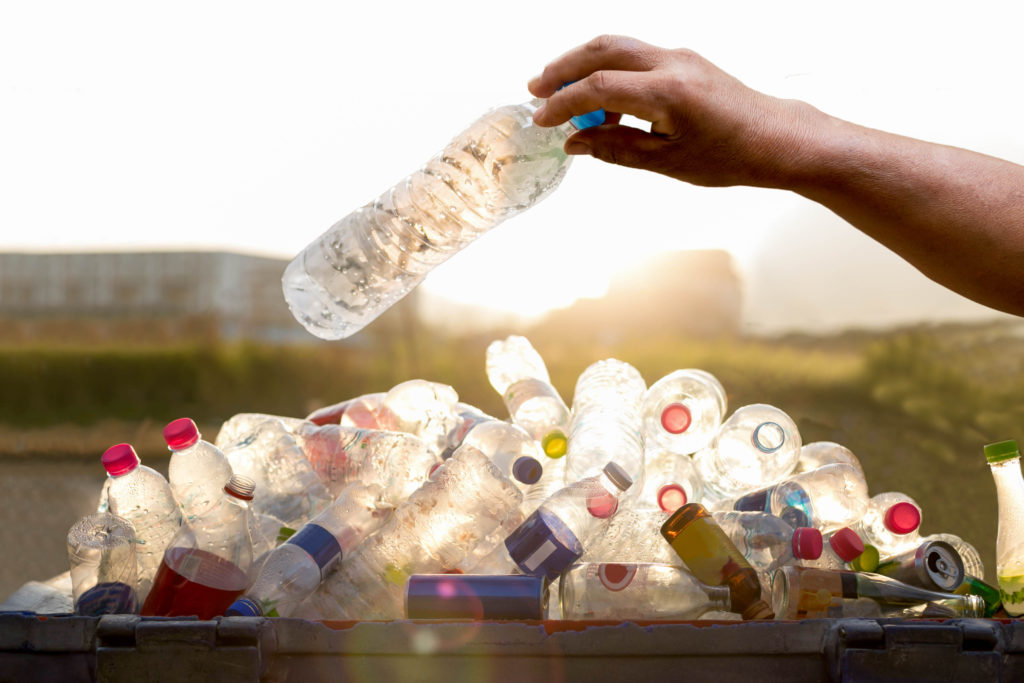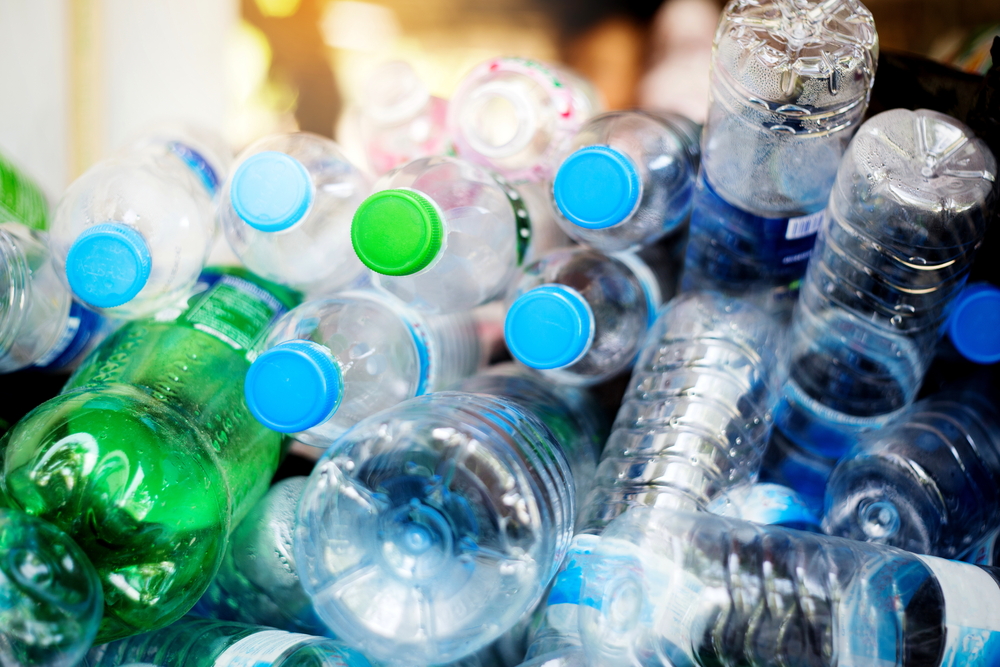The bottle has a low density inner plastic liner, which prevents liquid from contaminating the card and takes up 0.5% of the space of a traditional plastic bottle.
The new cartons come following similar moves by Waitrose and Sainsburys to cut their plastic milk packaging by replacing it with plastic pouches, which can be placed in reusable jugs.
However, members of the plastic recycling fraternity told letsrecycle.com that the moves away from plastic packaging could potentially harm the infrastructure being established to recycle plastic bottles and remove material at a time of increasing demand.
Stuart Foster, senior project manager at ReCoup – the national charity for plastic recycling and management – said: “If supermarkets are doing it just because bottles aren't being recycled, that is not a good reason because we have new facilities opening up in the UK, we have got an infrastructure that is going to require HDPE bottles going in so they can make new bottles again, so there is going to be demand.”
Mr Foster added that bottle recycling companies such as AWS Ecoplastics in Newcastle, Closed Loop in Dagenham and the recently opened Derby facility run by J&A Young (see letsrecycle.com story) have massive demand for recycled bottles and removing the commodity from the waste stream could endanger the growth of the sector.
Supporting ReCoup's stance, David Behrendt of the Plastics and Films Association said: “Given that the bottle recycling is taking off in the UK, then that is a better option than the use of cardboard.”
Overlooked
With substantial investment being poured into plastics recycling facilities, some inside the industry are concerned that facilities will be overlooked as consumers wish to see no plastic in stores rather than the plastic that they use being recycled.
A spokesman for Closed Loop, which has the capacity to recycle 35,000 tonnes of plastic bottles a year, said: “This year has seen the UK take big steps in the recycling of HDPE bottles. New infrastructure has been developed to fully close the loop, bottle-to-bottle, and there is a strong commitment from convertors to increase the recycled content of bottles.
“The consumer is key, recycling rates are improved when recycling is made easy and what could be easier than finishing a bottle and just throwing it into the recycling bin?” he said.
Others in the plastics recycling sector have concerns that specifically removing HDPE from the waste stream could have an impact of bottle collection as well as reprocessing.
Wilf Summer, sales manager for export at Roydon Export, claimed that the public could be the ones who bore the brunt of supermarkets removing plastic packaging.
He said: “It would have a knock-on effect on kerbside collections, as HDPE milk bottles are the most valuable commodity collected. If that goes down that is going to make it very hard to make the kerbside collections pay and Joe Public will have to pay for it in the end.”
Mr Summer added that replacing HDPE with lighter plastic pouches could also pose problems for recycling.
He said: “With pouches, a lot of the plastic material is very hard to recycle as it is a blend of polymers. Because supermarkets want longer shelf life [using pouches] may lead to three or four days longer life but when it comes to it, it is very difficult to actually recycle.”
BPF
Commenting on the moves, Anthony Roberts of the British Plastics Federation said that the new bottle was only a trial and therefore was not likely to impact significantly on levels of HDPE in the waste stream.
However, he said that the trials demonstrated that the use of plastics in the recycled cardboard containers and pouches showed that plastic was still the optimum material for packaging milk due to its resistance to fats and hygienic properties.
Mr Roberts said: “The new packaging uses a very resource efficient and lightweight pouch to transport the milk. Such lightweight packaging is only possible as a result of plastics. The lightweight nature of the plastics pouch may significantly reduce the weight of the packaging and thus reduce carbon emissions during transportation.”
ASDA
At ASDA, the supermarket is currently rolling out its cardboard-based GreenBottles – which are made from 91% recycled office paper – in 14 stores across East Anglia, as part of its pledge to cut packaging waste and send zero waste to landfill by 2010.
It claims that the milk bottle has a carbon footprint which is 48% lower than plastic.
Chris Brown, head of ethical and sustainable sourcing at ASDA, said: “Milk is one of our highest selling products, and as such, we have responsibility to develop alternative packaging making it easier for our customers to go green and to help them recycle at home.”
In addition to the move by ASDA, two other supermarket giants, Waitrose and Sainsbury's, have both moved away from plastic bottles with the introduction of milk in pouches.
Waitrose successfully trialled Calon Wen milk in milk pouches last June and is to introduce its own Select Farm Packs to 100 of its stores following good consumer response to the trial, while Sainsbury's will also make ‘milk-in-a-bag' available in 500 stores next year.











Subscribe for free